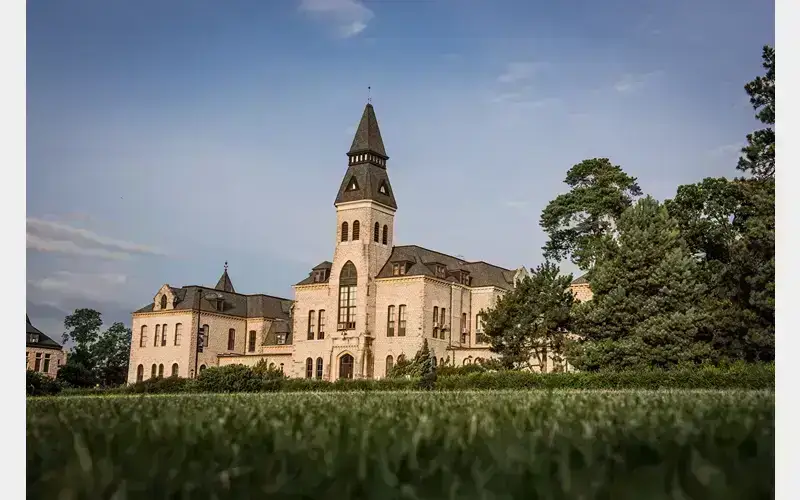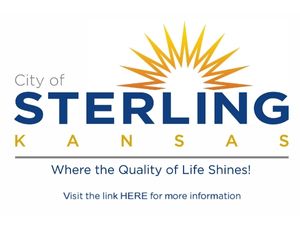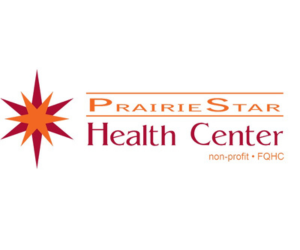By Jennifer Tidball and Laura McCarthy, K-State News and Communication Services
MANHATTAN AND KANSAS CITY, Kan. — Through the K-State 105 initiative, Kansas State University and The University of Kansas Health System announced today that the organizations are working together to explore ways to support health care in rural Kansas communities. The two organizations made the announcement during a joint news conference.
The partnership is a first-of-its-kind collaboration that brings together the land-grant mission and statewide presence of K-State through K-State Research and Extension with the expertise and experience of the state’s only academic health system.
“As a next-generation land-grant university, Kansas State University has identified community health and well-being as a focus area for engagement and transforming lives in Kansas,” said Marshall Stewart, K-State senior vice president and chief of staff. “We are thrilled to collaborate with our colleagues at The University of Kansas Health System and build a K-State 105 partnership that improves health care access for Kansans across the state.”
Through the K-State 105 partnership, K-State and The University of Kansas Health System will work with the statewide K-State Research and Extension network to meaningfully address health care challenges, particularly in rural Kansas.
“Access to quality health care is critical for patients, and for their communities,” said Bob Page, president and CEO of The University of Kansas Health System. “Our focus starts always with what is best for patients, and providing access to the expertise and resources of the state’s only academic health system is one of many ways we are working to provide support across our state.”
The two organizations are identifying health care areas for initial project focus. Some of these areas could include:
• Strategies to keep care local.
• Caregiver support for patients with dementia.
• Increasing access to digital and telehealth resources.
• Programming focused on behavioral health needs in rural communities.
• Addressing OB-GYN/high-risk pregnancy provider shortages.
• Grant writing and facilitation resources.
“Communities large and small across Kansas have similar goals — create a great place to live, work and enjoy life,” said Tammy Peterman, MS, RN, FAAN, president of the health system’s Kansas City Division. “We are excited to collaborate with K-State and its extension offices to address identified health challenges, as well as continue to learn and partner with rural health care providers on new solutions to emerging challenges.”
The program will start with pilot projects in areas still being determined through collaboration with communities and with K-State Research and Extension offices.
“Through K-State 105, we are building economic prosperity in all 105 counties of Kansas,” said Jessica Gnad, K-State 105 director. “We know that access to health care is an issue affecting economic and workforce development across Kansas. Our partnership with The University of Kansas Health System is just the beginning of a collaboration to empower Kansans to find solutions that work in their local communities.”
These efforts are meant to support and augment the work already being done by dedicated physicians, nurses and care providers throughout the state.
The statewide K-State Research and Extension network has locations in all 105 counties and plays a key role in connecting with communities. Community vitality and health have long been a focus of K-State Research and Extension programming, and K-State Research and Extension agents understand the opportunities and challenges in their local communities.
This project will build on the work being done by the Care Collaborative, a health system program that originally started to drive better outcomes in stroke, heart attack and sepsis care in rural Kansas. It now reaches 73 counties statewide, providing access to a variety of tools, expertise and resources for rural health care providers. The Care Collaborative, now in its 10th year, has developed programming and tools for quality improvement, behavioral health, diabetes education and new payment models for rural providers to enhance sustainability as the health care landscape changes.
K-State is focusing on health and well-being as the first Kansas university to adopt the international Okanagan Charter, which calls upon higher education institutions to embed health into university culture and promote health collaboration and action.
About K-State 105
K-State 105 is Kansas State University’s answer to the call for a comprehensive economic growth and advancement solution for Kansas. The initiative leverages the statewide K-State Research and Extension network to deliver the full breadth of the university’s collective knowledge and solution-driven innovation to every Kansan, right where they live and work. Additionally, K-State 105 forges the connections and partnerships that create access to additional expertise within other state institutions and agencies, nonprofits and organizations — all part of an effort to build additional capacities and strengths in each of the 105 counties in the state.
About The University of Kansas Health System
The University of Kansas Health System is the region’s premier academic health system, providing a full range of care. It includes The University of Kansas Physicians, the region’s largest multispecialty physician group. The health system is affiliated with the University of Kansas Schools of Medicine, Nursing and Health Professions and their leading-edge research projects. In the Kansas City metro area, the health system offers more than 140 hospital and clinic locations, including its flagship hospital in Kansas City, Kansas, a hospital at Indian Creek Campus in Overland Park, hospitals in Olathe and Miami County, and two mental and behavioral health hospitals in the Kansas City area. The health system in Kansas City has received Magnet nursing designation four times in a row for the highest level of care and has ranked every year since 2007 on U.S. News & World Report’s Best Hospitals lists (best in Kansas and Kansas City). It provides the region’s most experienced, nationally verified burn center and Level I Trauma Center, as well as a leading transplant program in liver, pancreas, kidney, heart, and blood and marrow. The cancer program is part of The University of Kansas Cancer Center, one of 56 National Cancer Institute-designated comprehensive cancer centers. In addition to Kansas City metro locations, the health system has locations in Great Bend, Topeka and elsewhere. It receives no state or local appropriations, instead relying on operating revenue, bonding authority and philanthropy.
###
As the nation’s first operational land-grant institution, Kansas State University has served the people of Kansas, the nation and the world since its founding in 1863 — and it continues to set the standard as a next-generation land-grant university. K-State offers an exceptional student experience across three physical campuses and online offerings, meeting students where they are and preparing them to achieve their personal and professional goals. The university is committed to its mission of teaching, research and service through industry-connected programs, impactful research-driven solutions, and a sharp focus on community engagement and economic prosperity.














































